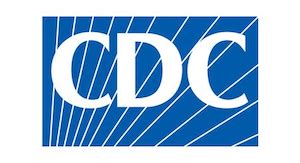Application Programming Interfaces (APIs)
See the following -
AMIA’s Doug Fridsma: Time for the Feds to Truly Open Up Patient Records to Fully Interoperable Data Use
 Access to information and the ability to integrate and use information has changed how individuals book travel, find information about prices and products, and compare and review services. Information can empower individuals, but health care has lagged behind other fields. It is unconscionable that in 2016 most patients are unable to obtain their entire medical record unless they print it out. While progress has been made in the last several years to support patients’ access to their information through various electronic means, such as Blue Button and patient portals, this is not sufficient to make patients first-order participants in their care, their health and their research efforts...
Access to information and the ability to integrate and use information has changed how individuals book travel, find information about prices and products, and compare and review services. Information can empower individuals, but health care has lagged behind other fields. It is unconscionable that in 2016 most patients are unable to obtain their entire medical record unless they print it out. While progress has been made in the last several years to support patients’ access to their information through various electronic means, such as Blue Button and patient portals, this is not sufficient to make patients first-order participants in their care, their health and their research efforts...
- Login to post comments
An Introduction to Libral, a Systems Management Library for Linux
 Linux, in keeping with Unix traditions, doesn't have a comprehensive systems management API. Instead, management is done through a variety of special-purpose tools and APIs, all with their own conventions and idiosyncrasies. That makes scripting even simple systems-management tasks difficult and brittle. For example, changing the login shell of the "app" user is done by running usermod -s /sbin/nologin app. This works great until it is attempted on a system that does not have an app user. To fix the ensuing failure, the enterprising script writer might now resort to...
Linux, in keeping with Unix traditions, doesn't have a comprehensive systems management API. Instead, management is done through a variety of special-purpose tools and APIs, all with their own conventions and idiosyncrasies. That makes scripting even simple systems-management tasks difficult and brittle. For example, changing the login shell of the "app" user is done by running usermod -s /sbin/nologin app. This works great until it is attempted on a system that does not have an app user. To fix the ensuing failure, the enterprising script writer might now resort to...
- Login to post comments
Angular vs. React: An Epic Battle for Developer Mind Share
 When the boss says it’s time to pour data into the screens of a bazillion visitors to your website, you have dozens of options for getting up and running fast. In the old days, most work was done on the server, but today much of the heavy lifting has been pushed to the client, making for a zippier, more interactive experience, because the client often has cycles to spare. There are a number of tools for client-side code that shoulder the job of laying out the data and interacting with the user. Two of the latest leading contenders are Angular and React, a pair of open source projects from Google and Facebook, respectively...
When the boss says it’s time to pour data into the screens of a bazillion visitors to your website, you have dozens of options for getting up and running fast. In the old days, most work was done on the server, but today much of the heavy lifting has been pushed to the client, making for a zippier, more interactive experience, because the client often has cycles to spare. There are a number of tools for client-side code that shoulder the job of laying out the data and interacting with the user. Two of the latest leading contenders are Angular and React, a pair of open source projects from Google and Facebook, respectively...
- Login to post comments
Apervita Selected to Demonstrate Real-time Analytics for the Veterans Affairs’ Digital Health Platform
 Apervita, Inc., the leading platform and marketplace for health analytics & data, today announced that Apervita participated in the US Department of Veterans Affairs (VA) proof-of-concept to demonstrate the power of real-time analytics to deliver higher quality, more efficient and flexible care as part of the Digital Health Platform (DHP) architecture. The VA’s DHP unlocks the enormous opportunity to integrate analytics for all patients and care providers, into a wide range of decision workflows and technologies, to provide the best care everywhere. In the proof-of-concept, Apervita acts as the real-time analytics engine to continuously execute pathways and guidelines and distribute resulting insights throughout the DHP and other platforms across the care continuum...
Apervita, Inc., the leading platform and marketplace for health analytics & data, today announced that Apervita participated in the US Department of Veterans Affairs (VA) proof-of-concept to demonstrate the power of real-time analytics to deliver higher quality, more efficient and flexible care as part of the Digital Health Platform (DHP) architecture. The VA’s DHP unlocks the enormous opportunity to integrate analytics for all patients and care providers, into a wide range of decision workflows and technologies, to provide the best care everywhere. In the proof-of-concept, Apervita acts as the real-time analytics engine to continuously execute pathways and guidelines and distribute resulting insights throughout the DHP and other platforms across the care continuum...
- Login to post comments
API Infrastructure Importance When Providing a Health Service
 In my ongoing review of application programming interfaces (APIs) as a technical solution for offering rich and flexible services in health care, I recently ran into two companies who showed as much enthusiasm for their internal technologies behind the APIs as for the APIs themselves. APIs are no longer a novelty in health services, as they were just five years ago. As the field gets crowded, maintenance and performance take on more critical roles in offering a successful business–so let’s see how Orion Health and Mana Health back up their very different offerings...
In my ongoing review of application programming interfaces (APIs) as a technical solution for offering rich and flexible services in health care, I recently ran into two companies who showed as much enthusiasm for their internal technologies behind the APIs as for the APIs themselves. APIs are no longer a novelty in health services, as they were just five years ago. As the field gets crowded, maintenance and performance take on more critical roles in offering a successful business–so let’s see how Orion Health and Mana Health back up their very different offerings...
- Login to post comments
APIStrat Boston to Highlight Link Between APIs and Open Source Projects
 This year's API Strategy and Practice (known as APIStrat)—to be held in Boston on November 2-4—has a strong open source component running throughout the event, and with little wonder. Successful API strategies more often than not either contribute new open source projects, or draw on the rich source of tools already built by the open source community. The API mindset has always lent itself to an open source ethos. APIs are all about opening up internal assets, data, and systems in order to connect and collaborate with a wider ecosystem of partners and end users...
This year's API Strategy and Practice (known as APIStrat)—to be held in Boston on November 2-4—has a strong open source component running throughout the event, and with little wonder. Successful API strategies more often than not either contribute new open source projects, or draw on the rich source of tools already built by the open source community. The API mindset has always lent itself to an open source ethos. APIs are all about opening up internal assets, data, and systems in order to connect and collaborate with a wider ecosystem of partners and end users...
- Login to post comments
Better Tech Is Here for Healthcare
 Better technology is out there serving other industries … and it can be applied in healthcare. Technology should ease administrative loads and put clinicians back in front of patients! I’ve talked about some of this previously and how we keep clinicians involved in our design process. When it came to building an entirely new EHR, the driving force behind our team researching and adopting new technologies was to imagine a clean slate...
Better technology is out there serving other industries … and it can be applied in healthcare. Technology should ease administrative loads and put clinicians back in front of patients! I’ve talked about some of this previously and how we keep clinicians involved in our design process. When it came to building an entirely new EHR, the driving force behind our team researching and adopting new technologies was to imagine a clean slate...
- Login to post comments
Bill & Melinda Gates Foundation Releases Open-Source Software to Support Efforts that Expand Access to Financial Services in Developing Countries
 The Bill & Melinda Gates Foundation today released a new open-source software for creating payment platforms that will help unbanked people around the world access digital financial services. The software is designed to provide a reference model for payment interoperability between banks and other providers across a country’s economy. It is available now, free-of-cost, for software developers to adapt and banks, financial service providers and companies to implement. Information on the code can be found at mojaloop.io...
The Bill & Melinda Gates Foundation today released a new open-source software for creating payment platforms that will help unbanked people around the world access digital financial services. The software is designed to provide a reference model for payment interoperability between banks and other providers across a country’s economy. It is available now, free-of-cost, for software developers to adapt and banks, financial service providers and companies to implement. Information on the code can be found at mojaloop.io...
- Login to post comments
Blockchain, APIs Take a Stab at the Healthcare Revenue Cycle
 Capital One is hoping to bring the blockchain and API tools to the healthcare industry by proving their value in the revenue cycle management arena. A pair of new partnerships between the financial services company and healthcare-focused startups aim to “reconceptualize” the claims management and patient payment processes, using blockchain and API technologies to reduce the time between service and collection...
Capital One is hoping to bring the blockchain and API tools to the healthcare industry by proving their value in the revenue cycle management arena. A pair of new partnerships between the financial services company and healthcare-focused startups aim to “reconceptualize” the claims management and patient payment processes, using blockchain and API technologies to reduce the time between service and collection...
- Login to post comments
Breaking Down the Role of Patient Engagement in Meaningful Use
 Patient engagement plays a great role in meaningful use, despite much industry debate and conflicting interests. Patient engagement is not just a new patient-centered care philosophy. For providers and hospitals participating in the EHR Incentive Programs, patient engagement is a critical part of receiving incentive payments. Between the different stages of meaningful use and new rule proposals amending the program, the requirements for patient engagement are not always clear.
Patient engagement plays a great role in meaningful use, despite much industry debate and conflicting interests. Patient engagement is not just a new patient-centered care philosophy. For providers and hospitals participating in the EHR Incentive Programs, patient engagement is a critical part of receiving incentive payments. Between the different stages of meaningful use and new rule proposals amending the program, the requirements for patient engagement are not always clear.
- Login to post comments
Can Open Source EHRs Offer a New Path for Health IT Usability?
 In an article published in JMIR Medical Informatics, researchers from the University of California-Davis decided to explore the small but intriguing world of open source EHRs, which may fit very neatly into the growing interest in application programming interfaces, FHIR, and other open data standards that encourage customized mix-and-match health IT development without the historical pitfalls of proprietary systems. Using data from 2014, the researchers identified 54 open source projects that met the HHS definition of an electronic health record. At the time, four of those packages had achieved Certified EHR Technology status from the ONC.
In an article published in JMIR Medical Informatics, researchers from the University of California-Davis decided to explore the small but intriguing world of open source EHRs, which may fit very neatly into the growing interest in application programming interfaces, FHIR, and other open data standards that encourage customized mix-and-match health IT development without the historical pitfalls of proprietary systems. Using data from 2014, the researchers identified 54 open source projects that met the HHS definition of an electronic health record. At the time, four of those packages had achieved Certified EHR Technology status from the ONC.
- Login to post comments
Capital One Introduces Blockchain and Analytics for Healthcare
Credit card and retail banking company Capital One revealed a handful of partnerships with several digital technology providers for its Treasury Management services — including a blockchain-based claims management solution for healthcare clients and another that uses new analytics processes to estimate healthcare patient costs. “We're seeing unprecedented transformation in the payments space as rapid advances in digital technology are reimagining the client experience,” Capital One executive vice president Patrick Moore said in a statement...
- Login to post comments
CDC Stands Up New Disease Forecasting Center - To Use Open Source Software and APIs to Expand Data Interoperability
 Today, the Centers for Disease Control and Prevention (CDC) is announcing a new center designed to advance the use of forecasting and outbreak analytics in public health decision making. Once established, the Center for Forecasting and Outbreak Analytics will bring together next-generation public health data, expert disease modelers, public health emergency responders, and high-quality communications, to meet the needs of decision makers. The new center will accelerate access to and use of data for public health decision-makers who need information to mitigate the effects of disease threats, such as social and economic disruption.
Today, the Centers for Disease Control and Prevention (CDC) is announcing a new center designed to advance the use of forecasting and outbreak analytics in public health decision making. Once established, the Center for Forecasting and Outbreak Analytics will bring together next-generation public health data, expert disease modelers, public health emergency responders, and high-quality communications, to meet the needs of decision makers. The new center will accelerate access to and use of data for public health decision-makers who need information to mitigate the effects of disease threats, such as social and economic disruption.
- Login to post comments
CHIME, HL7 Applaud ONC Road Map, JASON Task Force Recommendations
Health industry groups expressed optimism following the Oct. 15 meeting of the federal government's Health IT Policy and Standards committees to discuss a draft interoperability road map unveiled by the Office of the National Coordinator for Health IT. In particular, the College of Healthcare Information Management Executives and Health Level Seven International (HL7) viewed the road map as a step in the right direction...
- Login to post comments
CMS Inclusion of API’s for Stage 3 Meaningful Use Rule is the Right Decision
 One of these rules, the decoupling of EHR certification and meaningful use brings some hope to those looking to build upon established EHRs and other health databases. Prior to this, there has been a very tightly held belief that EHR systems would contain the answers needed to fulfill all governmental regulations, something that has not been shown to be the case. EHR’s are becoming very important tools for healthcare delivery, yet their regimented, and for the most part proprietary data storage models, do not allow for easy customization to meet the needs of our patients and the various healthcare professionals dependent upon them for day-to-day management of patients.
One of these rules, the decoupling of EHR certification and meaningful use brings some hope to those looking to build upon established EHRs and other health databases. Prior to this, there has been a very tightly held belief that EHR systems would contain the answers needed to fulfill all governmental regulations, something that has not been shown to be the case. EHR’s are becoming very important tools for healthcare delivery, yet their regimented, and for the most part proprietary data storage models, do not allow for easy customization to meet the needs of our patients and the various healthcare professionals dependent upon them for day-to-day management of patients.
- Login to post comments